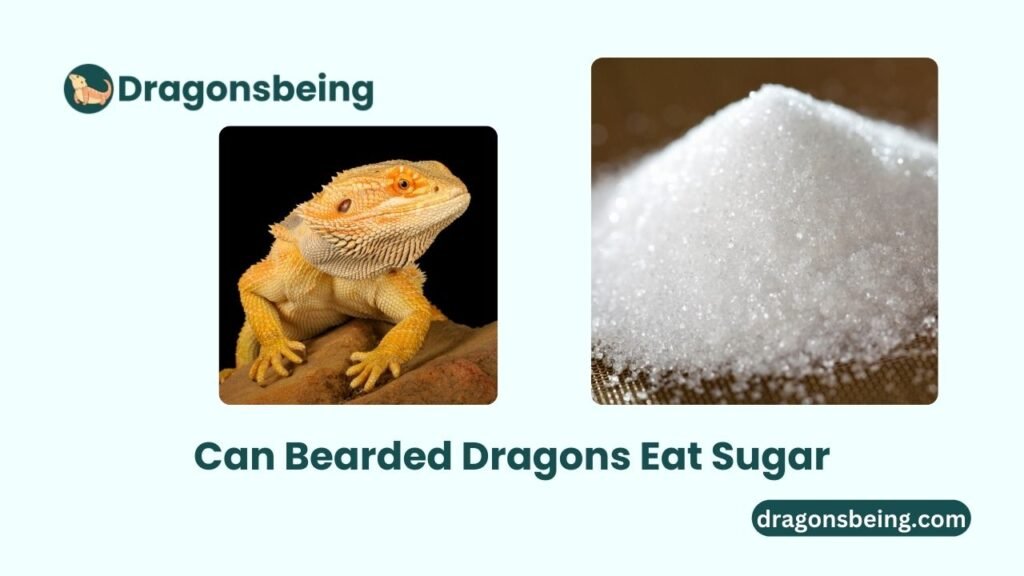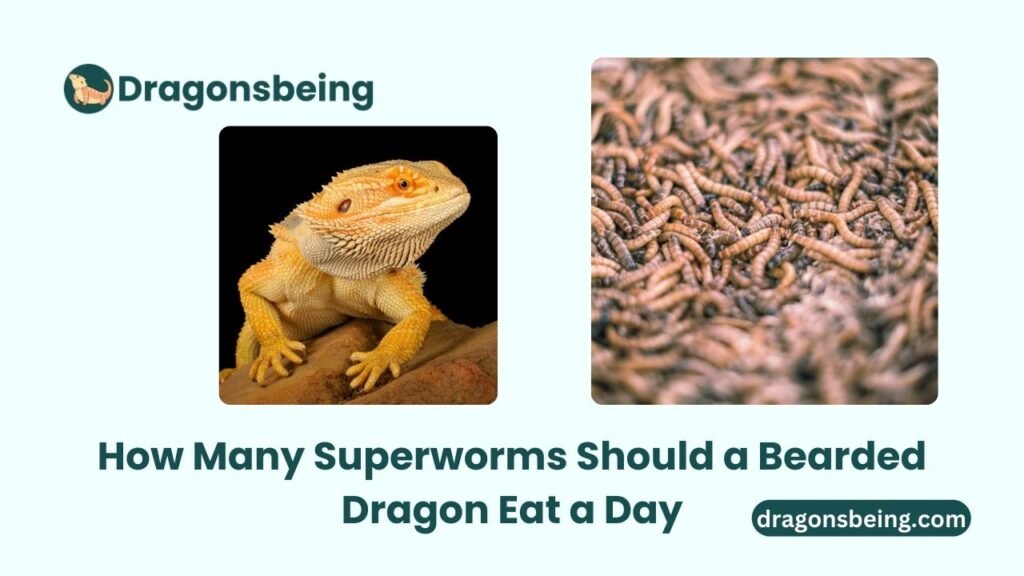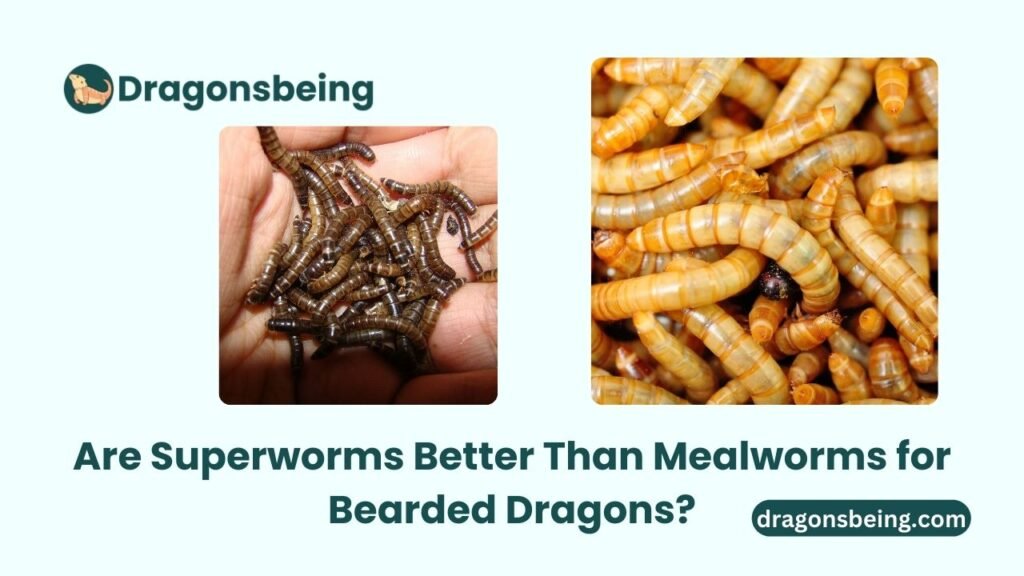Bearded dragons should not eat sugar. Sugar can lead to health issues like obesity and metabolic disorders.
Bearded dragons are popular pets known for their unique personalities and care requirements. A balanced diet is crucial for their health and well-being.
While they enjoy a variety of foods, many pet owners wonder about the safety of certain items.
Sugar, commonly found in many human foods, poses significant risks to these reptiles. Understanding what constitutes a healthy diet for bearded dragons helps pet owners make informed decisions.
This ensures that your pet thrives and avoids potential health complications.
Proper nutrition not only supports their growth but also enhances their overall quality of life. Knowing what to feed them is essential for every responsible bearded dragon owner.
The Sugar Question
Many pet owners wonder about sugar in their bearded dragon’s diet. Can these reptiles safely consume sugary foods? Understanding this topic is crucial for their health.
Sugar In A Bearded Dragon’s Diet
Bearded dragons are primarily insectivores and herbivores. Their diet consists of:
- Leafy greens
- Vegetables
- Occasional insects
Sugar is not a natural part of their diet. Foods high in sugar can be harmful.
Common sugary foods include:
| Food Item | Sugar Content |
|---|---|
| Fruits | High |
| Processed Snacks | Very High |
| Sweetened Yogurt | Very High |
Occasional fruits like apples and strawberries are acceptable. Limit the quantity. Always prioritize leafy greens.
Potential Health Risks
Feeding sugar to bearded dragons can lead to health issues. Common risks include:
- Obesity
- Diabetes
- Digestive problems
Obesity can reduce their lifespan. Diabetes can cause serious complications.
Signs of health issues include:
- Lethargy
- Weight gain
- Changes in appetite
Monitor your bearded dragon closely. Consult a vet if you notice any changes.
Nutritional Needs Of Bearded Dragons

Bearded dragons require a balanced diet for good health. Their nutritional needs include proteins, vitamins, and minerals. Proper nutrition supports growth and overall well-being.
Essential Vitamins And Minerals
Bearded dragons need various vitamins and minerals. Here are the key nutrients:
| Nutrient | Function | Sources |
|---|---|---|
| Calcium | Bone health and muscle function | Dark leafy greens, supplements |
| Vitamin D3 | Helps absorb calcium | Sunlight, supplements |
| Vitamin A | Vision and immune function | Carrots, sweet potatoes |
| Phosphorus | Bone health | Fruits, insects |
Balancing A Bearded Dragon’s Diet
A balanced diet includes both plant and animal sources. Here are some essential components:
- Vegetables: Leafy greens, squash, bell peppers
- Fruits: Berries, melons, and apples (in moderation)
- Insects: Crickets, mealworms, and roaches
Avoid sugary foods like fruits with high sugar content. Too much sugar can harm their health. Focus on providing a variety of foods to meet their nutritional needs.
- Offer fresh vegetables daily.
- Include insects several times a week.
- Limit fruits to occasional treats.
Monitor their health and adjust their diet as needed. Proper nutrition leads to a happy and healthy bearded dragon.
Foods To Avoid
Feeding your bearded dragon is important. Some foods can harm them. Understanding which foods to avoid helps keep your pet healthy.
Unsafe Fruits And Vegetables
Some fruits and vegetables are not safe for bearded dragons. Here are key examples:
- Avocado – Contains a toxin that can harm dragons.
- Rhubarb – High in oxalic acid; can cause kidney issues.
- Onions – Can lead to blood disorders.
- Potatoes – Contains solanine, harmful to reptiles.
- Tomatoes – Unripe tomatoes can be toxic.
Toxic Foods For Bearded Dragons
Some foods are outright toxic. Avoid feeding these:
| Food Item | Toxic Effect |
|---|---|
| Chocolate | Can cause seizures and death. |
| Caffeine | Can lead to heart problems. |
| Alcohol | Highly toxic; can cause organ failure. |
| Iceberg Lettuce | Offers no nutritional value; can cause diarrhea. |
Always check before feeding your bearded dragon. Keeping them safe is your priority.
Safe Treats For Bearded Dragons
Choosing safe treats for your bearded dragon is important. Some foods are healthy, while others can harm them. Always consider their diet and nutritional needs.
Healthy Snack Options
Bearded dragons enjoy a variety of healthy snacks. Here are some options:
- Leafy Greens: Kale, collard greens, and dandelion greens are great.
- Vegetables: Carrots, bell peppers, and squash can be offered.
- Fruits: Offer small amounts of strawberries, blueberries, and mango.
- Protein: Crickets, mealworms, and dubia roaches are excellent sources.
| Snack Type | Examples | Frequency |
|---|---|---|
| Leafy Greens | Kale, Collard Greens | Daily |
| Vegetables | Carrots, Bell Peppers | Every other day |
| Fruits | Strawberries, Blueberries | Occasionally |
| Protein | Crickets, Mealworms | 2-3 times a week |
Frequency Of Treats
Treats should not make up the main diet. Limit the frequency of treats:
- Leafy Greens: Offer daily.
- Vegetables: Provide every other day.
- Fruits: Give occasionally, once a week.
- Protein: Feed 2 to 3 times weekly.
Monitor your bearded dragon’s weight. Adjust treats as needed to keep them healthy.
The Impact Of Sugar On Bearded Dragons
Bearded dragons are popular pets. They require a balanced diet for health. Sugar can harm their well-being. Understanding the impact of sugar is crucial.
Digestive System Complications
Bearded dragons’ digestive systems are delicate. High sugar levels can disrupt their digestion. This can lead to several issues:
- Diarrhea
- Bloating
- Stomach pain
Sugar can also encourage bacterial growth. This may result in more severe digestive problems. A compromised digestive system can affect overall health.
Long-term Health Consequences
Long-term sugar intake can lead to serious health issues:
- Obesity: Excess sugar contributes to weight gain.
- Diabetes: Too much sugar may cause insulin problems.
- Kidney Damage: High sugar can stress the kidneys.
These conditions can shorten a bearded dragon’s lifespan. A proper diet without sugar is essential. Regular vet check-ups help monitor their health.
Alternative Diet Options
Bearded dragons need a balanced diet. They should not eat sugar. Instead, focus on healthier choices. Here are some great alternatives.
Insect-based Protein Sources
Protein is vital for your bearded dragon. Insects provide essential nutrients. Here are some excellent insect options:
- Crickets: High in protein and easy to digest.
- Mealworms: A tasty treat but feed in moderation.
- Dubia Roaches: Nutritious and low in fat.
- Waxworms: High in fat, best as an occasional snack.
Always buy insects from reputable sources. Avoid wild-caught insects due to pesticides.
Vegetables And Greens
Fresh vegetables and greens are crucial. They provide vitamins and minerals. Here are some great options:
| Vegetable/Green | Benefits |
|---|---|
| Collard Greens | Rich in calcium and vitamins. |
| Mustard Greens | Contains antioxidants and fiber. |
| Bell Peppers | High in vitamins A and C. |
| Carrots | Good for vision, contains beta-carotene. |
Chop vegetables into small pieces. This makes it easier for them to eat.
Offer a variety of foods. This keeps your bearded dragon healthy and happy.
Monitoring Your Bearded Dragon’s Health
Maintaining your bearded dragon’s health is vital. A proper diet affects their overall well-being. Be cautious with sugary foods, as they can cause health problems. Regular monitoring can help detect issues early.
Signs Of Dietary Issues
Watch for these signs to ensure your bearded dragon is healthy:
- Loss of appetite: Not eating or refusing food.
- Weight loss: Noticeable decrease in body weight.
- Diarrhea: Frequent watery stools.
- Constipation: Difficulty in passing stools.
- Skin shedding: Improper shedding or retained skin.
These symptoms can indicate dietary issues. Take action if you notice any of them.
Regular Health Check-ups
Schedule regular vet visits for your bearded dragon. A professional can spot problems early. During these check-ups, the vet will:
- Examine weight and growth.
- Check for signs of illness.
- Discuss dietary needs.
- Provide vaccinations if necessary.
Following a proper diet will help prevent health issues. Focus on high-quality insects and greens.
| Dietary Component | Recommended Amount | Potential Issues from Sugar |
|---|---|---|
| Insects | 70-80% of diet | None |
| Greens | 20-30% of diet | None |
| Sugary Treats | Minimal | Obesity, metabolic issues |
Monitor your bearded dragon’s health closely. A balanced diet is essential for a long life.
Expert Opinions
Understanding the dietary needs of bearded dragons is essential. Various experts share their views on whether these reptiles can consume sugar. Their insights shed light on safe practices for pet owners.
Veterinarian Recommendations
Veterinarians emphasize a balanced diet for bearded dragons. They recommend avoiding sugar-rich foods. Sugar can lead to health issues, including obesity and dental problems.
- Natural Diet: Focus on vegetables, fruits, and insects.
- Health Risks: Excessive sugar can cause metabolic disorders.
- Feeding Guidelines: Limit sugary treats to rare occasions.
Consult a veterinarian for personalized advice. Each dragon has unique dietary needs.
Experienced Owner Advice
Many seasoned bearded dragon owners share valuable insights. They often observe how their pets react to different foods.
- Monitor Reactions: Watch for any signs of discomfort.
- Choose Wisely: Opt for naturally sweet fruits like strawberries.
- Limit Portions: Offer small amounts occasionally.
Experienced owners agree on moderation. Sugar should be a rare treat, not a regular part of the diet.
| Food Type | Sugar Content | Recommendation |
|---|---|---|
| Leafy Greens | Low | Safe |
| Fruits | Varies | Limit |
| Insects | None | Safe |
| Sugary Treats | High | Avoid |
Following expert advice helps ensure your bearded dragon stays healthy. A balanced diet leads to a happier, longer life.
Creating A Balanced Diet Plan
A balanced diet is crucial for your bearded dragon’s health. It ensures they get the right nutrients. A proper plan helps avoid health issues. Let’s explore how to create this plan effectively.
Meal Planning For Bearded Dragons
Meal planning helps provide a variety of foods. Here are some essential foods to include:
- Greens: Collard greens, dandelion greens, and kale.
- Vegetables: Squash, carrots, and bell peppers.
- Protein: Crickets, mealworms, and roaches.
- Fruits: Blueberries, strawberries, and mango (in moderation).
Use a weekly plan to ensure variety. Here’s a sample meal plan for a week:
| Day | Morning Meal | Evening Meal |
|---|---|---|
| Monday | Collard greens and crickets | Bell pepper and mealworms |
| Tuesday | Kale and crickets | Squash and roaches |
| Wednesday | Dandelion greens and mealworms | Carrots and crickets |
| Thursday | Collard greens and roaches | Bell pepper and mealworms |
| Friday | Kale and crickets | Squash and roaches |
| Saturday | Dandelion greens and mealworms | Carrots and crickets |
| Sunday | Fruit (small portions) | Greens and protein mix |
Adjusting Diet With Age
Bearded dragons have different dietary needs as they grow. Here’s how to adjust their meals:
- Hatchlings (0-3 months): Focus on protein. Offer insects daily.
- Juveniles (3-18 months): Increase veggies. Offer insects 3-4 times a week.
- Adults (18+ months): More greens. Limit insects to 1-2 times a week.
Keep an eye on their weight and health. Adjust portions as needed. Always provide fresh water. This helps maintain hydration.
Frequently Asked Questions
Can Bearded Dragons Eat Fruit With Sugar?
Bearded dragons can eat fruits, but high-sugar fruits should be limited to avoid health issues.
Is Sugar Harmful To Bearded Dragons?
Yes, excessive sugar can lead to obesity and metabolic problems in bearded dragons.
What Fruits Should Be Avoided For Bearded Dragons?
Avoid high-sugar fruits like bananas and grapes, as they can upset your dragon’s digestive system.
Can Bearded Dragons Have Honey Or Syrup?
Honey and syrup are too sugary and should not be fed to bearded dragons.
How Much Sugar Can Bearded Dragons Consume?
Sugar intake should be minimal; occasional treats are fine, but avoid regular sugary foods.
What Are Safe Treats For Bearded Dragons?
Safe treats include leafy greens, certain vegetables, and occasional low-sugar fruits like blueberries.
Conclusion
Feeding bearded dragons requires careful consideration. Sugar can lead to health issues like obesity and metabolic disorders. It’s best to stick to their natural diet of vegetables and insects. Keeping their diet balanced ensures they thrive. Always consult a vet for tailored advice on your bearded dragon’s nutrition.

Hi, I’m Dr. Michelle Mayers, a veterinary professional with a deep passion for animal health and well-being. Over the years, I’ve dedicated my life to caring for animals and helping pet owners better understand their furry, feathered, or scaly companions. On my blog, Dragonsbeing, I share insights, tips, and stories that aim to educate, inspire, and connect with fellow animal lovers. Join me at Dragonsbeing as we explore the fascinating world of veterinary care and celebrate the special bond between humans and animals!


